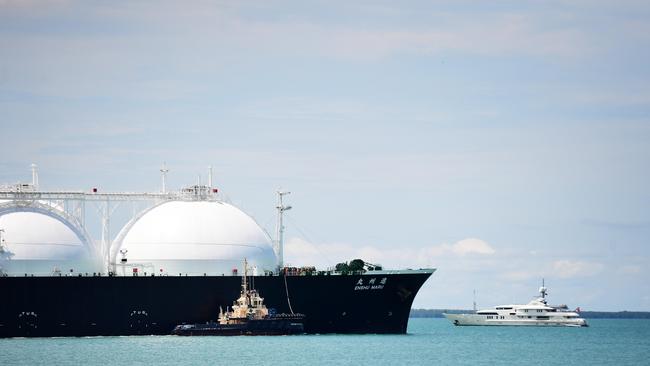Gas prices: Row erupts over ‘excessive’ local costs
A row has erupted over whether Australian companies are paying more for gas produced here than overseas buyers.

A fresh spat over high east coast gas prices has erupted after the national group representing top energy producers disputed new analysis showing Australian users were paying more for gas than customers of its LNG exports in Asia.
Australian consumers were paying 71 per cent more on average for spot gas at the current market price than export “netbacks”, which measure the delivered price of LNG minus the costs of liquefaction and transport, a study from the green-focused Institute for Energy Economics and Financial Analysis found.
Domestic users were paying $8.88 a gigajoule for their gas, compared with an October netback price of $5.19 a gigajoule published by the Australian Competition and Consumer Commission, the IEEFA said.
Read more: NSW law to shield coal mine projects from emissions concerns
“Australian gas consumers are paying on average 71 per cent more for gas than they should in various gas markets around the country,” IEEFA gas analyst Bruce Robertson said.
Buyers of Australia’s export gas in Japan paid $6.88 a gigajoule in October.
“Australian consumers are paying more than Japanese customers for gas produced in Australia,” Mr Robertson said. “That the country can provide gas to Australia’s export customers at a price cheaper than domestic consumers is a total policy failure at both state and federal levels of government.”
However, the national body representing big Queensland gas producers Santos, Origin Energy and Shell disputed the analysis as riddled with “wilful misrepresentations and false claims”.
“It is simply not true that Australian gas users are paying higher prices than those in Japan. An International Gas Union study earlier this year found Japanese wholesale gas price was over 40 per cent more that paid by Australian customers,” Australian Petroleum Production and Exploration Association chief executive Andrew McConville told The Australian. “The ACCC, citing a study by Platts, also confirms eastern Australian gas prices are not higher than those in major Asian markets.”
APPEA also questioned comparisons of spot prices with those paid by Australian consumers.
“It is not reasonable to compare ‘spot prices’ in the day-to-day gas market with those typically paid by Australian gas users,” Mr McConville said. “Less than 10 per cent of Australia’s gas demand is met on the spot market. Average prices remain below export netback prices and dramatically lower than those paid in countries which import Australian gas.”
Big gas users have been expressing frustration for some time over both elevated prices and their difficulties in securing supplies, amid broader tensions over tight markets for both gas and electricity generation along the eastern seaboard.
While the immediate focus for the power market is ensuring it heads off any shortfalls during peak demand this summer, the extension of a contract to be announced on Monday between Origin Energy and French energy major Engie will also help stabilise South Australia’s volatile energy market into the next decade.
Origin has renewed a gas supply agreement to Engie’s Pelican Point power station in Adelaide for four years starting July 2020, helping to back up the rapid growth of renewables in the state.
The deal for the 240 megawatt Pelican Point plant — which meets about 10 per cent of the state’s electricity demand — follows a 2017 pact which allowed the facility to meet full capacity with Origin using its generation to supply customers in South Australia.


To join the conversation, please log in. Don't have an account? Register
Join the conversation, you are commenting as Logout